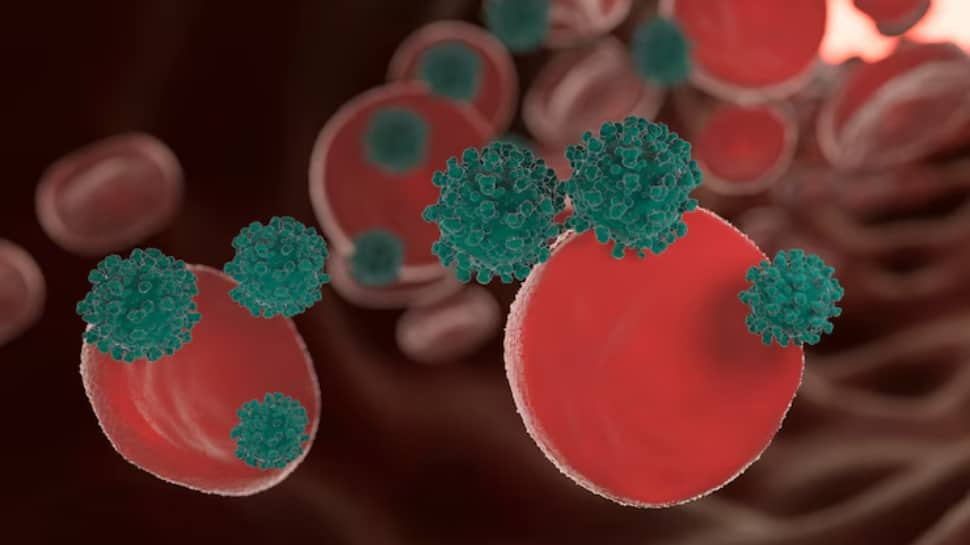Doctor Warns: These 5 Silent Symptoms Could Be Early Signs Of Blood Cancer, Don’t Ignore Them! | Health News

Blood cancer may not show itself with flashing signs or dramatic symptoms, but it quietly disrupts your body in ways that are often dismissed or misunderstood. Hematologic cancers, such as leukemia, lymphoma, and multiple myeloma, begin in the bone marrow, where blood cells are produced, and gradually impair the body’s ability to function normally.
According to Dr Nitin Agarwal, MD Transfusion Medicine and HoD, Donor Request Management at DKMS Foundation India, recognising early symptoms can significantly improve treatment outcomes. “Detecting blood cancer early can make all the difference,” he says. “It also increases the success rate of crucial interventions like blood stem cell transplants.”
1. Unexplained and Persistent Fatigue
While most of us feel tired now and then, blood cancer-related fatigue is persistent, extreme, and doesn’t improve with rest or sleep. Dr Nitin explains, “This type of exhaustion often stems from the body’s inability to produce enough healthy red blood cells, leading to anaemia—a common complication of leukaemia and myeloma.” You may also experience shortness of breath, weakness, or difficulty doing routine tasks.
2. Recurring Infections or Frequent Fevers
When your immune system is compromised, even mild infections can become serious. “Blood cancers crowd out healthy white blood cells,” says Dr Nitin, “which are essential for fighting off infections.” If you find yourself catching colds or fevers frequently, and they’re more intense or take longer to recover from, it may be more than just a seasonal bug.
3. Unusual Bleeding or Easy Bruising
Frequent nosebleeds, bleeding gums, or bruises without injury should never be ignored. According to Dr Nitin, such symptoms could indicate platelet dysfunction caused by leukemia. “You might also notice red or purple spots on your skin called petechiae, a result of bleeding under the skin,” he adds. These warning signs are often dismissed as minor but can point to serious underlying issues.
4. Unexplained Weight Loss and Night Sweats
Losing weight without changing your diet or lifestyle? It could be a red flag. Dr Nitin notes that rapid weight loss combined with night sweats and fever, known as “B symptoms,” is a classic sign of lymphoma. “These signs are often mistakenly attributed to stress or hormonal imbalances, but when persistent, they warrant immediate medical attention.”
5. Swollen Lymph Nodes or Bone Pain
If you notice a painless lump in your neck, armpit, or groin that doesn’t go away for weeks, don’t brush it off. “Swollen lymph nodes are a hallmark of lymphoma,” warns Dr Nitin. “Similarly, persistent bone pain, especially in the ribs, spine, or hips, could be linked to multiple myeloma, which damages the bone marrow and weakens bones.”
Blood Stem Cell Transplants: A Life-Saving Option
When blood cancer is diagnosed, one of the most effective treatment paths is a blood stem cell transplant. This procedure involves replacing damaged or diseased bone marrow with healthy blood-forming stem cells from a matching donor.
Dr. Nitin emphasises, “A successful transplant can completely regenerate the blood and immune system, offering patients a second chance at life. But finding a match isn’t easy.”
Why India Desperately Needs More Stem Cell Donors
Each year, over 70,000 people die of blood cancer in India, accounting for 8% of all new cancer cases. Yet, only 30% of patients find an HLA-matched donor within their family. The rest, 70%, are forced to rely on unrelated donors. Unfortunately, due to low awareness, only 0.09% of India’s population is registered as potential stem cell donors.
Dr Nitin urges people to step forward: “Becoming a donor is safe, simple, and could save someone’s life.”
Blood cancer is treatable, if caught early. The key is to stay vigilant about your health and never ignore recurring or unexplained symptoms. From chronic fatigue to painless swelling, the body often whispers before it screams.







